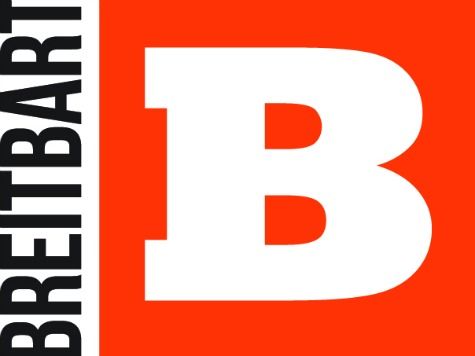Federal Communications Commission (FCC) Chairman Ajit Pai said in a speech on Tuesday that Internet giants such as Facebook, Google, and Twitter want to use net neutrality to “cement their dominance in the Internet economy.”
At his speech in Washington, D.C., on Tuesday, Pai defended his “Restoring Internet Freedom Order” that will repeal the FCC’s 2015 net neutrality order, and argued that content providers such as Facebook, Google, and Twitter serve as the most serious threat towards internet freedom.
Breitbart News reported that social media giants such as Google and Twitter may stifle Internet freedom more than Comcast or Verizon, largely due to their rampant censorship of alternative viewpoints.
Silicon Valley companies such as Google, Facebook, and Twitter criticized the FCC’s net neutrality repeal, arguing that it will allow Internet service providers (ISPs) such as Comcast or Verizon to block, throttle, and prefer content at will. Pai contends that not only have these companies repeatedly blocked conservative viewpoints, they also want net neutrality to cement their dominance in the Internet economy.
Pai charged:
Now look: I love Twitter, and I use it all the time. But let’s not kid ourselves; when it comes to an open Internet, Twitter is part of the problem. The company has a viewpoint and uses that viewpoint to discriminate. As just one of many examples, two months ago, Twitter blocked Representative Marsha Blackburn from advertising her Senate campaign launch video because it featured a pro-life message. Before that, during the so-called Day of Action, Twitter warned users that a link to a statement by one company on the topic of Internet regulation “may be unsafe.” And to say the least, the company appears to have a double standard when it comes to suspending or de-verifying conservative users’ accounts as opposed to those of liberal users. This conduct is many things, but it isn’t fighting for an open Internet.
Pai added, “And unfortunately, Twitter isn’t an outlier. Indeed, despite all the talk about the fear that broadband providers could decide what Internet content consumers can see, recent experience shows that so-called edge providers are in factdeciding what content they see. These providers routinely block or discriminate against content they don’t like.”
The FCC Chairman also argued that the Internet giants have often censored conservative voices on their platform and caved to foreign governments’ demands to stifle alternative points of view. Pai explained:
The examples from the past year alone are legion. App stores barring the doors to apps from even cigar aficionados because they are perceived to promote tobacco use. Streaming services restricting videos from the likes of conservative commentator Dennis Prager on subjects he considers ‘important to understanding American values.’Algorithms that decide what content you see (or don’t), but aren’t disclosed themselves. Online platforms secretly editing certain users’ comments. And of course, American companies caving to repressive foreign governments’ demands to block certain speech—conduct that would be repugnant to free expression if it occurred within our borders.
FCC Chairman Pai explained further how many tech executives remain the gatekeepers of the internet, to benefit themselves:
In this way, edge providers are a much bigger actual threat to an open Internet than broadband providers, especially when it comes to discrimination on the basis of viewpoint. That might explain why the CEO of a company called Cloudflare recently questioned whether “is it the right place for tech companies to be regulating the Internet.” He didn’t offer a solution, but remarked that “what I know is not the right answer is that a cabal of ten tech executives with names like Matthew, Mark, Jack, . . . Jeff are the ones choosing what content goes online and what content doesn’t go online.”
Nonetheless, these companies want to place much tougher regulations on broadband providers than they are willing to have placed upon themselves. So let’s be clear. They might cloak their advocacy in the public interest, but the real interest of these Internet giants is in using the regulatory process to cement their dominance in the Internet economy.
And here’s the thing: I don’t blame them for trying. But the government shouldn’t aid and abet this effort. We have no business picking winners and losers in the marketplace. A level playing field, not regulatory arbitrage, is what best serves consumers and competition.
Pai concluded his speech, “So when you get past the wild accusations, fearmongering, and hysteria, here’s the boring bottom line: the plan to restore Internet freedom would return us to the light touch, market-based approach under which the Internet thrived. And that’s why I am asking my colleagues to vote for it on December 14.”
[contf] [contfnew] 
Breitbart
[contfnewc] [contfnewc]























































